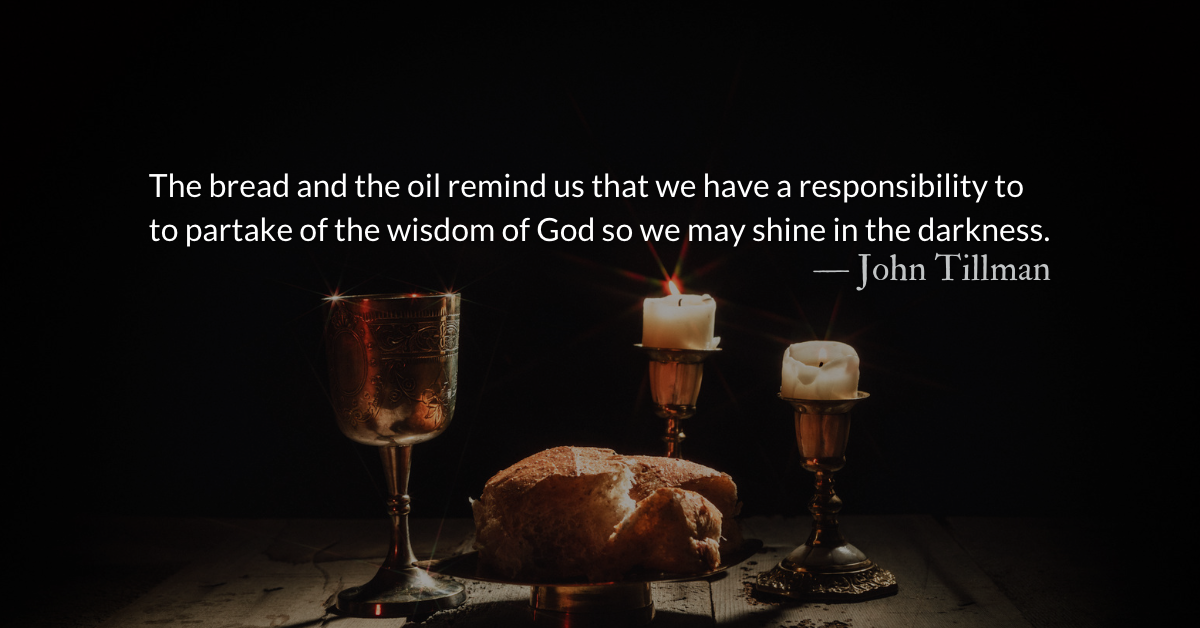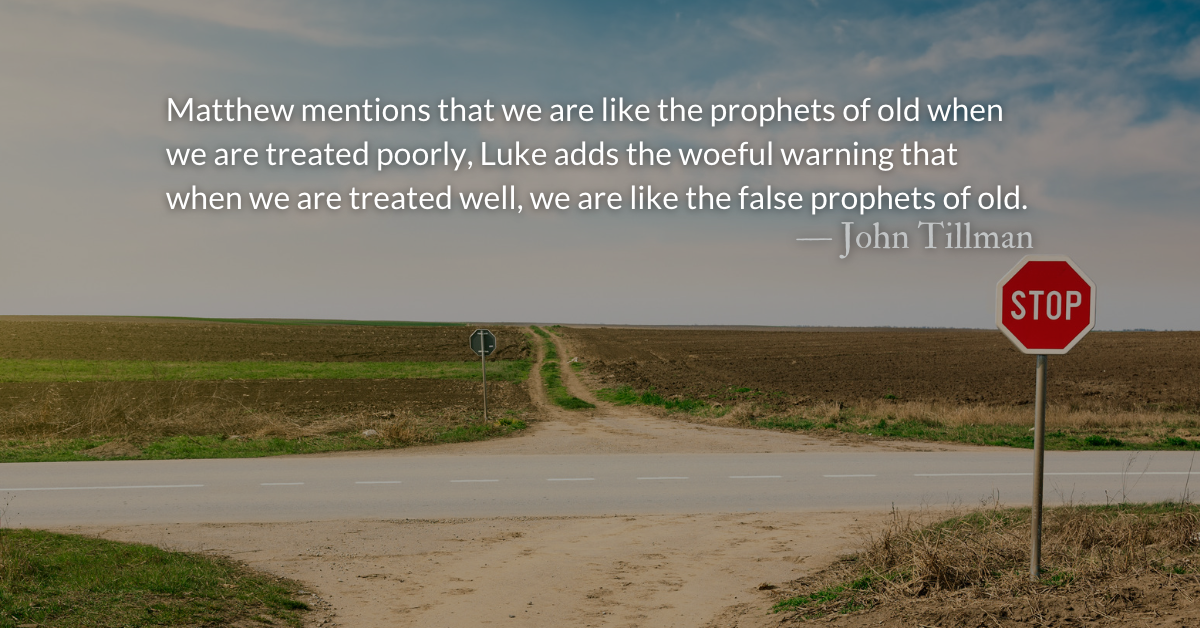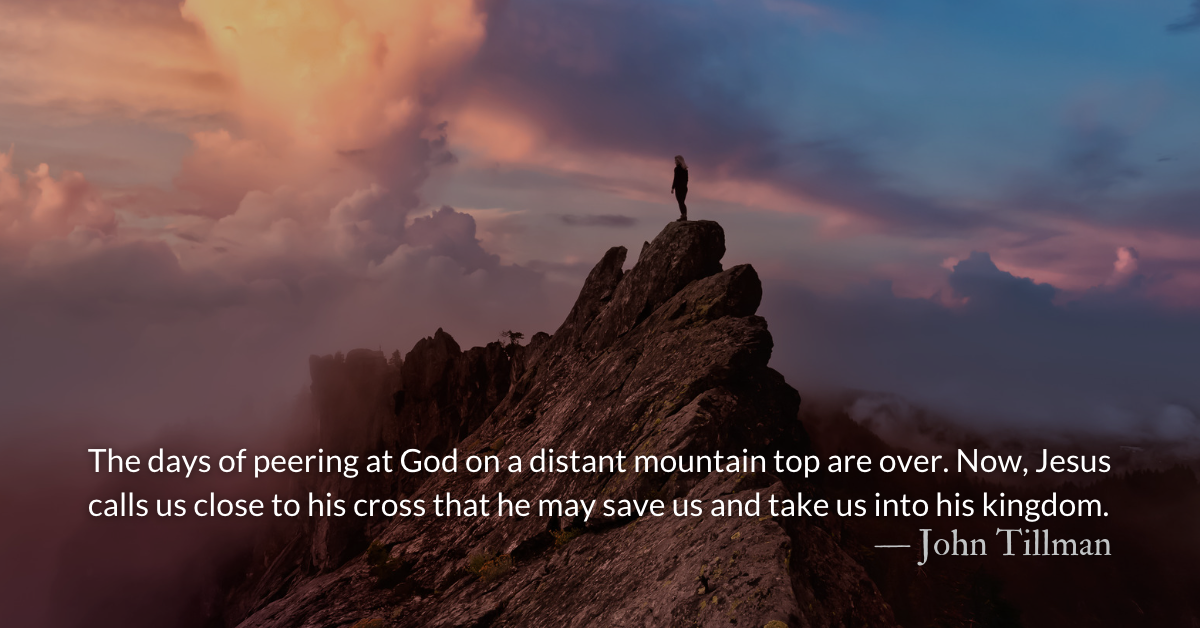Scripture Focus: Exodus 25.23, 30
23 “Make a table of acacia wood—two cubits long, a cubit wide and a cubit and a half high. 24 Overlay it with pure gold and make a gold molding around it…30 Put the bread of the Presence on this table to be before me at all times.
Exodus 27.20-21
20 “Command the Israelites to bring you clear oil of pressed olives for the light so that the lamps may be kept burning. 21 In the tent of meeting, outside the curtain that shields the ark of the covenant law, Aaron and his sons are to keep the lamps burning before the Lord from evening till morning. This is to be a lasting ordinance among the Israelites for the generations to come.
Reflection: Bread and Oil
By John Tillman
Every ordinance and ornamentation in the Tabernacle, and in the Temples that followed it, were weighty not just with gold but with symbolism.
We will focus on two—oil and bread. The oil and the bread are both, in their own way, symbols of God’s presence.
The lampstands and the oil were instrumental in shining out the light of God’s presence into the courtyard. Isaiah and John both tell us that, eventually in Heaven, the Lord will be our “everlasting light” and no lamps will be needed for there will be no more night. (Isaiah 60.19-20; Revelation 22.5)
Like Israel, we aren’t there yet. We live in the shadowy now, where night is always coming and shadows grow long. We live in a world that needs light.
The bread is symbolic of God as the source of life. Jesus was likely thinking of this bread when he said that he was the bread of life, the true manna from heaven. (John 6.57-58) Many disciples left Jesus because of this difficult teaching, but Peter recognized and explained that it was Jesus’ teachings, the words that he gave them, that were life.
For the priests and the people, bread represented that God’s words were the sustenance of life that the community needed. As Jesus would say to Satan in the desert, we live by words from the mouth of God. The lamps, faithfully tended and lit each evening, represented that God’s light was with them in the darkness.
In the Tabernacle and the Temples, only priests could eat the bread or tend the lamps. But Jesus tore down the curtains and barriers. We are each a temple of the Holy Spirit. We are all priests serving under Jesus, our high priest.
The bread and the oil remind us that we have a responsibility to to partake of the wisdom of God so we may shine in the darkness.
We are both eligible to stand in the light and responsible to shine it.
We are eligible to partake in the bread and to waft its fragrance to others and invite them in.
We must keep our lamps lit, faithfully bringing the oil.
We must partake in the bread that is true life, the word of God.
We need to make Jesus’ words our food. He is the true bread of life.
“Lord, to whom shall we go? You have the words of eternal life.” (John 6.68)
Divine Hours Prayer: The Request for Presence
May God be merciful to us and bless us, show us the light of his countenance and come to us. — Psalm 67.1
– From The Divine Hours: Prayers for Springtime by Phyllis Tickle.
Today’s Reading
Exodus 25 (Listen 4:20)
Luke 7 (Listen 7:14)
Read more about Manna or the Man?
What are our motives for pursuing Jesus? Do we want the man or just the manna?
Read The Bible With Us
Bible reading plans engage us in systematic reflection that deepens understanding over time. Immerse in the Bible with us at a sustainable, two-year pace.
https://mailchi.mp/theparkforum/m-f-daily-email-devotional






